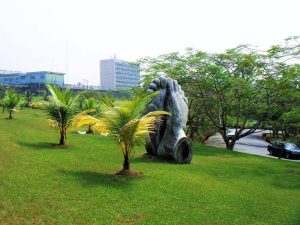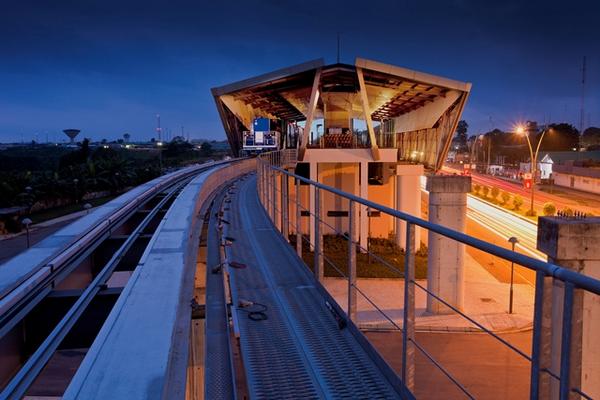
Calabar; is the administrative capital of Cross Rivers State known for tourism and attractions popular in the region; the Obudu Cattle Ranch and the once promising Tinapa, a world-class business and leisure resort[i]. Traditionally, when one wants to say something is beautiful in local dialect, they say it is so beautiful like Efik. Literally that means Calabar. They called Calabar the Canaan City. This part of the world, once a powerful coastal city state of Kalahari (New Calabar) have some beautiful aspects of culture. With tender, soft beautiful language; finesse of love; cleanliness; tidiness; gentleness; hospitality; orderliness; a good balance between women and men. The popular fattening of maidens in the culture was a domestic school to groom young maidens on how to be good wives, and how to be good mothers. Because they were secluded, well cared for and fed they put on weight[ii]. Institutions of learning worthy of note include the Hope Waddel Training Institute, Calabar, The Polytechnic, Calabar, and University of Calabar.
Development
Calabar experienced rapid expansion in infrastructural development during Governor Donald Duke’s administration. Accompanying the expansion are the usual trappings associated with urbanisation: housing shortage, transportation challenges, increased crime rate, and high unemployment. Consequently, the state government embarked on measures aimed at tackling the transportation needs of the city, especially in the light of the expected influx of tourists and visitors to Tinapa, the business and leisure resort destination commissioned early in April, 2007. In February, the government flagged off a taxi scheme with 50 brand new Peugeot cars, while in March, a metroline bus network was commissioned with 15 luxury buses. On 24 April, Donald Duke, the state governor flagged off a monorail project with a ground-breaking ceremony at the Margaret Ekpo International Airport.
The project, reputed, to be the first in Africa, is designed to significantly take pressure off the roads, as it provides for two streams of traffic – those arriving via the Margaret Ekpo Airport : and those coming in by road from the neighbouring states of Akwa lbom, Abia, Benue, Rivers and Ebonyi[iii]. The proposed Lagos-Calabar rail tracks is targeting all the seaports. It will reach Calabar Port, Port Harcourt, Eleme deep seaport, the Warri port and Lagos ports would be captured in this route. This means that all the goods arriving in Nigeria will be moved right from the seaports to the dry ports. The economic benefits are that it will remove imported products off the road, making the road to last longer; accidents will reduce and the cost of doing business will reduce because the rail transport cost is always cheaper than other means of transport; and will impact the economy of Nigeria[iv].

Sports & Tourism
Golden Eaglets team which emerged victorious at the 2013 FIFA Under-17 World Cup n United Arab Emirate were camped in Calabar for two years prior[v]. Nigeria’s much smaller version of the Rio De Janiero, Brazil festival, the annual Calabar Carnival that has become Nigeria’s, and potentially Africa’s, largest and most popular street cultural festival takes place every December for one whole month in the ancient Nigerian city of Calabar. In 2013, the city welcomed the largest congregation of football followers in its history[vi].
Political History
The Calabar-Ogoja-Rivers (COR) State Movement in the East was among the Ethno-based agitations aimed at asserting the separate identity of the smaller groups, which promptly sprouted at independence[vii].
Bakassi
When Britain took control of the Oil Rivers Protectorate which included Calabar and its surrounding villages after the Berlin Conference of 1883-84, the place was administered from Ikot Nakada in Akpabuyo . The boundary with the Cameroon Colony administered by German colonisers was Debrel-Rey. Names of inhabitants of the peninsula are basically Efik and Ibibio[viii]. The area was under the defunct Eastern Nigeria, being under the traditional authority of the Obong (King) of Calabar. Brigadier-General Benjamin Adekunle, liberated Bakassi from the armed forces of the secessionists during the 30-month civil war in Nigeria. But the court rejected Nigeria’s argument on the legal theory of historical consolidation[ix].
[i] Newswatch, April 9, 2007
[ii] NATION, December 12, 2014
[iii] TheNews, May 7, 2007
[iv] Punch June 10, 2016
[v] Guardian, November 11, 2013
[vi] Guardian November 16, 2013
[vii] Guardian December 16, 2013
[viii] TheNews, July 3, 2006
[ix] TheNews October 28, 2002





















